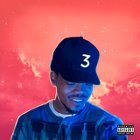Review | Chance the Rapper blurs the lines on his Coloring Book
Chance the Rapper![Coloring Book -Headstuff.org]()
Coloring Book
[Self-Released]
It has been fascinating to watch the recent industry reactions to the changing way that people consume music. Instead of some artists only making their work available for purchase upon release, the new normal is to only make it available to one service or another two or more weeks in advance in exchange for what is a presumably very large lump sum of money from Apple Music or Tidal.
A worrying trend, especially as it becomes difficult to recall a major release that hasn’t been unveiled this way and it’s a direction that is once again making piracy seem like a more convenient option. Why give Apple a month’s subscription just to get to listen to one album? When Coloring Book, Chance the Rapper‘s heavily anticipated new mixtape, was released it’s hard to imagine many Spotify, Google Play Music or Tidal users not heading straight for a torrent or some other sort of shady download. In a time when it is harder for artists to monetise their work, it’s hard to blame someone like Chance for taking Apple’s money but by the same token it’s more than a little troubling.
Which brings us to the album itself. On the back of his stellar performance on Kanye West’s instant classic ‘Ultralight Beam’, Chance the Rapper has added a lot of hype and commercial viability to his already burgeoning reputation. It’s a rep that is well deserved, but Coloring Book is a record that doesn’t quite live up to expectations. This isn’t to say that it’s bad – far from it – but it has numerous issues, the most obvious of which is the overbearing religious overtones that plague almost every track. ‘Ultralight Beam’ is wonderful because it is an uplifting ray of light amongst the themes of regret, shame, anger, arrogance and debauchery that otherwise make up The Life of Pablo.
There are moments when Coloring Book is almost as enjoyable, but left to his own devices Chance comes across more smug than enthusiastic. By the time track five (‘Blessings’, where Chance obnoxiously instructs to listener “Don’t be mad” when it comes to his unceasing praise of the lord) rolls around, the act is tiresome. Chance has been praised for going against hip-hop norms, and there is some truth to that, but he’s hardly the first person of the genre to write extensively about their relationship with god.
His choice of features, given the subject matter of the album, is also very strange. An underrated strength that many of the best rappers have is their ability to choose who to feature on their work and how to use them. Chance, for reasons that are unclear, chose to include the likes of Future, 2Chainz and Lil’ Wayne on a clean-cut gospel album. All three fail to hit their mark, while Young Thug also fails to shine on ‘Mixtape’. Some of the features do work (Kanye and Justin Bieber in particular) but the hits-to-misses ratio is disappointingly low.
[youtube id=”DVkkYlQNmbc”]
It is far from all bad, however. Chance has a lot of presence, a tremendous flow and is a very strong writer. Album opener ‘All We Got’ with Kanye West and the Chicago Children’s Choir feels like the spiritual (lol) successor to ‘Ultralight Beam’. He manages to not let West steal the show while still allowing him to positively influence the song, which is a very rare feat as West has a habit of upstaging his peers both when he features on their songs and when he allows them to appear on his. ‘No Problem’ is let down by the aforementioned average 2Chainz and Lil Wayne features but otherwise has an infectious hook and another fantastic performance by Chance. ‘Blessings’, despite being grating in places, is some of his strongest work lyrically:
“I know the difference in blessings and worldly possessions
Like my ex girl getting pregnant and her becoming my everything
I’m at war with my wrongs, I’m writing four different songs
I never forged it or forfeited, I’m a force to be reconciled
They want four minute songs
You need a four hour praise dance performed every morn
I’m feeling shortness of breath, so Nico grab you a horn”
‘Juke Jam’, with a game Justin Bieber on the hook, is a coming of age tale and a very welcome change of pace. The sexual overtones and Chance’s use of the word ‘nigga’ seem at odds with the rest of the record, however. Not that there’s anything wrong with either, it’s just hard to reconcile with the man we hear from on almost every other song. ‘All Night’ has the potential to be a huge hit, with its fast pace and catchy chorus that is sure to be widely misunderstood as it is about Chance’s hesitancy to embrace his newfound fame and the lifestyle that comes with it.
Jarringly, the overly-preachy-but-good-once-it-gets-going ‘How Great’ (basically the words “How great is our god” repeated over and over by a gospel choir for the first three minutes) comes after ‘All Night’ but before the strange ‘Smoke Break’ featuring Future. It’s an excellent song in isolation, but its use of drugs as a metaphor for sex seems totally out of place here. There is a lack of cohesion and flow to the second half of the album that really hurts it.
Overall, Coloring Book feels like something of a missed opportunity. So many of the songs on here are excellent in isolation, but become harder to enjoy when considered in context. It’s a bizarre feat and it’s hard to think of another album or “mixtape” in recent memory that achieves the same thing. Chance is incredibly talented and for all its problems, Coloring Book is well worth devoting time to. More consistency and cohesion is needed for the overall quality to live up to his reputation, but he’s not far off.


